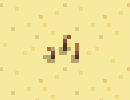The Complete Guide to Obtaining Fossils and Bones in Stardew Valley
Stardew Valley, the idyllic farming RPG, isn’t just about tilling the soil and raising animals. One of the game’s most engrossing features is the hunt for various types of artifacts, bones, and fossils to contribute to Gunther’s museum. Yet, players often find themselves stuck when it comes to obtaining these elusive items.
In this guide, we will break down all the methods for obtaining 11 specific types of bones and fossils: Prehistoric Scapula, Prehistoric Vertebra, Prehistoric Skull, Skeletal Hand, Prehistoric Rib, Prehistoric Tibia, and Skeletal Tail. Plus, fossils such as Nautilus Fossil, Amphibian Fossil, Palm Fossil, and Trilobite.
Note: These items cannot be found in Ancient Casks and thus make your museum donation goals a bit tricky.
Method 1: Dig Site and Bone Nodes
The Dig Site can be a goldmine when it comes to finding bones. Each bone node you find here has a 0.8% chance of yielding any of the listed bones.
However, the nodes regenerate quite slowly. You may not get more than a few per day, which can make the wait agonizing. For newcomers, it might take three to four years in-game to gradually collect these bones from the quarry.
If you’re short on patience, you can use the save-load technique to “refresh” these nodes. Mine a node, note down what it yields, and then reload your save file to only mine the nodes that yield the bones you need.

Method 2: Worm Spots and Artifact Spots
Artifact Spots, symbolized by wiggling worms on the ground, can also yield all kinds of bones. Each spot has a chance to give you a specific type of bone, depending on the location and the season.
For instance, the chance of finding a Prehistoric Scapula in the town is 0.7%, while it ranges from 3% to 6% in the Marnie’s Ranch map. The chances vary because of seasonal changes affecting the drop rate.
Here’s a list of where you can most efficiently find each type:
- Prehistoric Scapula: Marnie’s Ranch (6%), Town (0.7%)
- Prehistoric Vertebra: Railroad (8%), Marnie’s Ranch (0.6%)
- Prehistoric Skull: Robin’s House (6%)

The probability of acquiring these bones through worm spots isn’t particularly high. But similar to the Dig site, you can use save-scumming to change what each Artifact Spot yields.
Method 3: Fishing Chests
Fishing can be another avenue to find three specific types of artifacts: Skeletal Tail, Nautilus Fossil, and Amphibian Fossil. These have a high drop rate of between 3.1% to 3.4% in fishing chests.
If you stack up on Magnet Bait and use the Pirate profession skill to increase your chest rate to 50%, you could potentially gather these in just a couple of days. However, the chances for other types of artifacts in fishing chests range from 0.7% to 0.8%, so fishing isn’t the most efficient way for those.
Method 4: Monster Drops
Bones can also be obtained by slaying specific monsters. Dinosaurs, for instance, can drop Prehistoric Tibia, Prehistoric Rib, and Prehistoric Spine at a 30% rate. They also have a 10% chance of dropping a Dinosaur Egg.
Skeletons between levels 70–80 in the Mines can drop the Prehistoric Scapula at a 0.5% rate. The number of Skeletons in these levels is relatively high, making it a reliable source.

The Ghosts can drop Prehistoric Skull and Skeletal Hand at a 1.3% chance, but they are only available in the Quarry Mine and dungeon levels of the Mines, which don’t refresh as often.
The Tail Bone is the only one that can’t be obtained from monsters. You’ll need to rely on mining or other methods for this one.
Summary
Getting your hands on all the bones and fossils required for museum donation in Stardew Valley can be a challenging but rewarding task. By knowing where to look and how to maximize your chances, you’ll fill up those museum display cases in no time.
Have you ever found yourself stuck on a particular bone or fossil? Share your experiences!